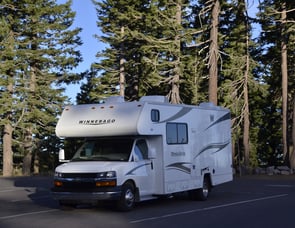Alaska Wildlife Conservation Center
- Home
- Attractions
- Alaska Wildlife Conservation Center
Located within the picturesque landscape of Portage Valley, the Alaska Wildlife Conservation Center (AWCC) stands as a beacon of wildlife preservation and rehabilitation. The AWCC is a sanctuary of over 200 acres, focusing on the welfare of Alaska's orphaned, injured and displaced animals.
Since its humble beginnings in 1993, the center has grown, borne out of necessity due to the massive Exxon Valdez oil spill, which left many animals in dire need of help. The AWCC started with one animal, a wounded bald eagle. Today, it houses over a dozen different species, all native to Alaska.
How to Get There
The AWCC is about 48 miles southeast of Anchorage. It's a straightforward drive along the scenic Seward Highway, offering stunning views of the Turnagain Arm and the Chugach Mountains. Ted Stevens Anchorage International Airport is the nearest airport if you're flying in. Car rentals and shuttle services are available at the airport. The Alaska Railroad's Glacier Discovery train stops near the center if you prefer public transportation.
Rent an RV For Your Visit to Alaska Wildlife Conservation Center
Visit Alaska Wildlife Conservation Center
At the AWCC, you can observe Alaska's native creatures, like bears, moose and caribou, in their natural habitat. The center's spacious enclosures mimic the wilderness, providing an authentic backdrop for these magnificent animals.
One of the must-see exhibits at the AWCC is the Bear Den, where you can watch the antics of brown and black bears from a safe distance. The aviary is also worth a stop, home to various injured raptors, including bald eagles, owls and hawks. Keep an eye out to see the wood bison, a species once extinct in the wild but now thriving at the AWCC.
The best time to visit the AWCC is during summer when the weather is warm, and the animals are most active. It brings about the annual Baby Season, where you can witness the center's youngest residents explore their surroundings. Winter visits are charming, too, as you can enjoy the snow-covered landscape and the animals' winter behavior.
Ticket Information
General Admission prices for adults are $20 per person. Alaska residents pay $18 per person and should have a valid Alaska ID. For persons in the military, both active and retired, it is $18 with a military ID. As for youth aged between 5-17, the cost is $16 per person. Children aged 4 and under get in free.
Family-Friendly Options
The AWCC is a paradise for families and large groups as it offers several fun tours where you can get up close and personal with some incredible animals. There are plenty of picnic spots for the little ones needing a break. The center also provides educational programs and activities designed to engage and inspire children.
How to Make the Most of Your Visit
If you're visiting the AWCC during the summer, you may want to visit in the morning to avoid the crowds of tourists. The first thing you should do is decide how you want to explore the 1.5-mile loop of the animal enclosures. You do so in a car or a bike or even on foot. After completing your tour, you may want to have a picnic. If you're at the AWCC during the summer between May-and September, you can dine at the on-site food truck. Stop by the gift shop to snag a souvenir. You can also capture once-in-a-lifetime images of wildlife you probably never thought you'd be able to see in person.
Alaska Wildlife Conservation Center Accommodations
Campgrounds Nearby


Centennial Campground is one of the best RV campgrounds in Anchorage, AK, because it is located extremely close to the city. In fact, it will only take you about 15 minutes to get downtown where you can go shopping, find a sightseeing tour or grab a quick bite to eat. It is a very nice place to stay, but black bears do frequent the area, so be aware of your surroundings.

Golden Nugget RV Park is conveniently located close to Anchorage, so you can easily reach most sightseeing destitions without an issue. When you are ready to relax for the night, this RV park has live entertainment for visitors who are staying here to enjoy. This can include dancers, live music, karaoke, stand-up comedy and even magic shows.
Activities Near Alaska Wildlife Conservation Center
Things to Do
Hiking
About 10 minutes southeast of the AWCC is Portage Lake, where there are several hiking trails. The 1.4-mile Byron Glacier Trail is an easy trek, starting in a forest full of alders and cottonwoods. The Trail of Blue Ice is a five-mile gravel route with bridges and boardwalks. There is a small elevation gain at the end of the trail.
Flora and fauna
Visiting the AWCC is an opportunity for any nature enthusiast to explore various plants and animals. These include towering spruce trees, delicate wildflowers, brown bears and red foxes.
Climbing
For the more adventurous, the nearby Chugach Mountains offer excellent opportunities for climbing. But remember that safety is paramount, so ensure you're well-prepared before embarking on your climbing adventure.
National Parks
Weather, Safety & Accessibility
Weather & Packing
Alaska's weather is usually unpredictable with conditions changing from one moment to the next. Since summer in Alaska is mild, it is the perfect time to view wildlife in its most active state. Pack a waterproof jacket and comfortable walking shoes for exploring the center's terrains.
During the fall, expect cooler temperatures. It is a great time to see the foliage change color. Pack warm clothing, including jackets, hats, gloves and sturdy footwear. In winter, temperatures drop below freezing with snowfall transforming the landscape into a winter wonderland. Be sure to pack heavy winter clothes. Springtime sees temperatures warming up and the reappearance of wildlife. Pack clothes to be ready for the changing weather, and include a good waterproof jacket for the occasional spring shower.
Safety & Accessibility
When visiting the AWCC, it is best to remember that these animals are still wild. So do not approach, touch or feed them. Stick to designated paths and viewing areas, and always supervise children.
The AWCC prohibits using drones within the park boundaries to ensure a peaceful animal environment. Pets are not allowed within the center for the safety and well-being of the pets and the center's animals.
The park is also wheelchair accessible with paved paths ensuring easy movement around the center. Information on animals is available for individuals with hearing impairments upon request. For those with disabilities, service animals can be with their owners within the park.
Conclusion
With its environment, accessibility features and proximity to nature's wonders, the AWCC is a sanctuary where you can witness the majesty of Alaska's diverse wildlife up close and a learning hub fostering a greater understanding of the importance of conserving these incredible species. So take some time to prepare to visit the Alaska Wildlife Conservation Center to enjoy nature as it is.
FAQ
There are camping options near the AWCC. One such location is Williwaw Campground, nestled amongst glaciers and offering a serene camping experience in the heart of nature.
While the AWCC does not have specific RV facilities, several nearby locations cater to RV travelers. Williwaw Campground is an option, allowing you to stay close to nature.
Always keep a safe distance, and do not try to feed or touch the wild animals. Be aware that the weather in Alaska can be unpredictable, so it's important that you pack and wear proper footwear.
The AWCC provides a safe environment. Paths, picnic spots and a wealth of educational opportunities about Alaska's wildlife make it an excellent place for children and adults.
Pets are not permitted within the center to focus on the safety and well-being of the pets and the resident animals. However, service animals can go with their owners with disabilities.






